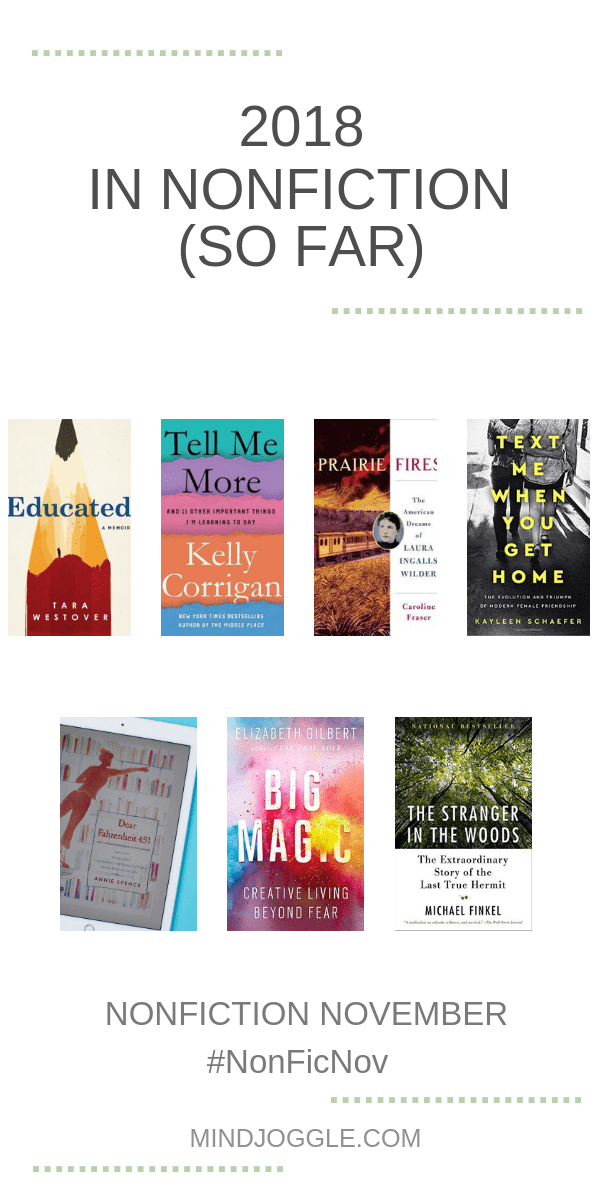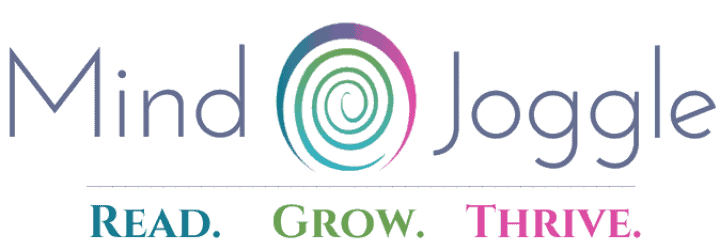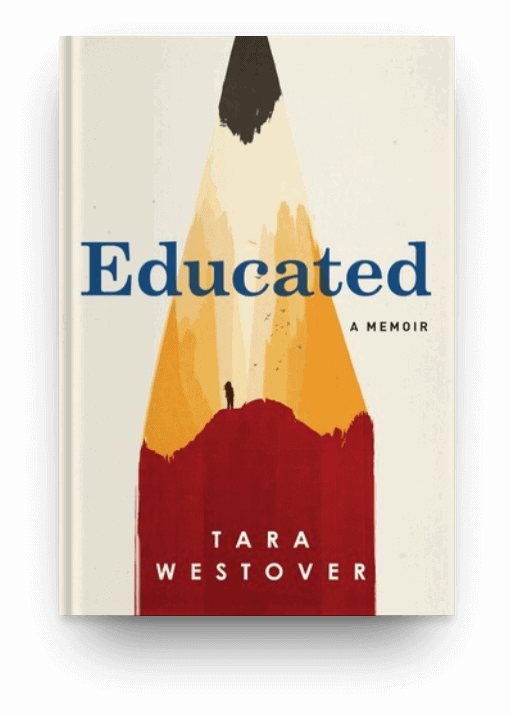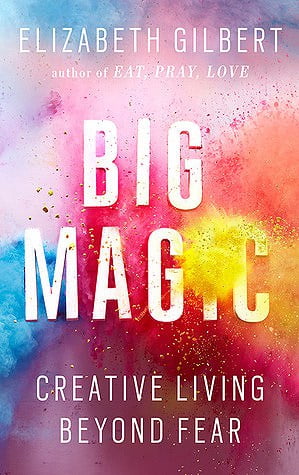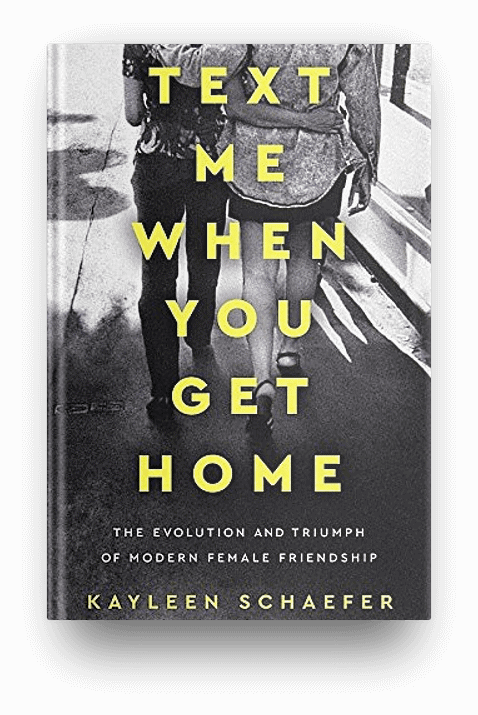2018 in Nonfiction (So Far)
Reviews of nonfiction I’ve read in 2018, including The Stranger in the Woods, Prairie Fires, Educated, Big Magic, Tell Me More, Text Me When You Get Home, and Dear Fahrenheit 451.
This post may include affiliate links. That means if you click and make a purchase, I may earn a small commission. Please see Disclosures for more information.
It’s Nonfiction November! (Almost.) This month, the bloggers who participate are celebrating all things nonfiction. We’re kicking things off this week with a look back at all of the nonfiction books we’ve read this year.
I haven’t read a ton of nonfiction in 2018, but I enjoyed all of those I did read. I also read a good mix of biographies, essays, and an especially memorable narrative nonfiction book that was on everyone’s list this year. I tend to most enjoy narrative nonfiction, so I need to be sure to pick up more.
I’ve only participated in Nonfiction November once–last year–but I like to use it as an opportunity to focus on reading nonfiction for the month. I don’t naturally gravitate to nonfiction and would probably get a little frustrated if I tried to only read nonfiction for a whole month.
So, in addition to Nonfiction November, I may also be participating in Margaret Atwood Reading Month (#MARM) with a reread of The Handmaid’s Tale and possibly one other Atwood book. It’s a lot for one month, so we’ll see how it goes! More on the reading plans soon.
This week’s Nonfiction November topic is Hosted by Kim at Sophisticated Dorkiness.
2018 in Nonfiction (So Far)
Here are the nonfiction books I’ve read in 2018, along with my mini reviews of each.
The Stranger in the Woods: The Extraordinary Story of the Last True Hermit
For 27 years, Christopher Knight lived in the woods of Maine without coming into contact with another person. In 1986, at age 20, he drove into the woods and left his car behind for a life of seclusion. He broke into nearby homes and a summer camp for supplies, taking only what he needed to survive. These break-ins made him a legend--elusive, never violent, but unsettling all the same.
He was finally caught during one of his burglaries, and author Michael Finkel was fascinated by the story of the last true hermit. He connected with Knight through letters and interviews. Though Knight wanted no fame and had kept no record of his life of solitude, his story was slowly revealed.
Finkel tells the story of a man with an extreme desire for isolation and how he managed to elude authorities and the intrusion of the outside world for so many years. Knight is a fascinating person, resourceful and singularly focused. I listened to this on audio and it was riveting.
More info →
Prairie Fires: The American Dreams of Laura Ingalls Wilder
I was a huge fan of everything Little House when I was a kid. I read the books over and over, and I watched the television series. This past year, I've been diving back into that world. I've been reading the books aloud with my daughter, but I've also been taking a more nuanced look at the world presented by Laura Ingalls Wilder. First, I read (and loved) Caroline: Little House, Revisited (Ma's fictional perspective on the Little House on the Prairie story), and then I dove into the true story with this detailed biography.
There are parts of Prairie Fires that read like a history textbook; the book is long, and it can get quite dry. It presents the broader historical context in which the Ingalls and Wilder families lived, and that included things like farm loans, railroads, crop pricing, and politics.
At the same time, when the book circles back to the families, it makes clear how these things affected their lives and decisions. As a reader of the books, it was gratifying to learn that many of the events actually happened--but also interesting as an adult to learn of the ommissions, both of events and of character flaws. Most illuminating was the incessant devastation that occurred through their lives: fires, grasshoppers, storms, illness--and ongoing poverty that resulted. While these things were present in the books, the reality of them is a contrast to the idyllic lives we remember.
The later years of Wilder's life were also fascinating--especially her relationship with her volatile daughter, Rose. Their partnership brought the books we love to life, but they would have been quite different without both Laura's measured approach and Rose's editing talent and flair for the dramatic (inserted sparingly, thanks to her mother's reserve). Rose herself is an interesting character, and there were moments when the author seemed to question her sanity. Laura's husband, Almanzo, unfortunately, is not a strong presence. The author drew heavily from the letters and writing of the women, and he was not a writer.
While I enjoyed this biography, because of the length and level of detail, I would only recommend this to other avid fans of the Little House books.
More info →
Educated: A Memoir
As a young child, Tara Westover's upbringing seemed almost charming and old fashioned. Living on a mountain in Idaho, the family strived for self-sufficiency based in faith and closeness to one another. As Tara grew up, however, she realized that their lives were driven by paranoid survivalism, religious extremism, abuse, and possibly mental illness.
Tara's memoir traces the path from her cloistered upbringing--during which she never set foot in school--to her eventual education at BYU, Cambridge, and Harvard.
But more important than her formal educational path is her move toward awareness and a sense of self that wasn't allowed in her mountaintop life. Educated explores her attempts to reconcile this new sense of self and the boundaries she learns to set with the love and longing she feels for her family.
An incredible read both for the excellent writing and the author's thoughtful, unblinking, nuanced look at herself and her own life.
More info →
Big Magic: Creative Living Beyond Fear
In Big Magic, author Elizabeth Gilbert (of Eat, Pray, Love fame) shares reflections and lessons on living a creative life. While she can get a little woo-woo for my taste, overall I enjoyed her perspective on creativity. Gilbert strives to keep a positive attitude toward the process, craft, and work of a creative life, rejecting the notion that creatives must be tortured souls who suffer for their art. I'm not sure I fully buy into her magical notions of creative ideas as living things, but there's certainly no harm in the visualization. I see more value in it that in the self-flagellation that often occurs when artists struggle to bring something to life. Overall, I love her sense of gratitude for the opportunity to create, and I could see myself revisiting this if I ever find myself despairing over my own creative efforts.
More info →
Tell Me More: Stories about the 12 Hardest Things I’m Learning to Say
The twelve things that Kelly Corrigan is learning to say are things that we all need to learn to say, and I think women and mothers in particular feel many of these deeply. Corrigan weaves in small anecdotes over larger narratives of family, friendship, and loss. Her reflections bring her to comfort with uncertainty, with deeper listening and less solving, and with setting limits--among other things. Each reader will find something different that resonates. For me, the essays "Tell Me More" and "No" stuck out, but I suspect that will change through the years. Worth a read, and a revisit.
More info →
Dear Fahrenheit 451: Love and Heartbreak in the Stacks: A Librarian’s Love Letters and Breakup Notes to the Books in Her Life
Dear Fahrenheit 451 is the blog I would write if I had a little more snark in me--only in book form. I had so much fun reading Annie Spence's letters to the book she loves, the books she's retiring from the stacks (she's a librarian), and the many books that have stayed with her in various ways.
I actually found this hard to put down--it was such a light, funny read, and I looked forward to seeing if she covered any of my favorites. She hit on a few that I've loved, as well as some others that I'd now like to read. But some of the funniest letters were to the surprising finds that she weeds from the stacks (The One Hour Orgasm and Principles of Bloodstain Pattern Analysis, anyone?). If you love books about books, this is one of my favorites.
More info →
Text Me When You Get Home: The Evolution and Triumph of Modern Female Friendship
This book about the power of female friendships was a little drier than I expected, but it was peppered with pop culture and personal anecdotes, which kept me reading. I was hooked when the book started with a long reflection on the movie Beaches--a movie I first watched with one of my childhood best friends when we were about ten. It quickly became our all-time favorite, and so this seemed like a book I was meant to read. Even so, this book didn't resonate with me as much as it might with someone a bit younger. It did make me reflect on those wonderful years when friends were everything, and wish that my lifelong friends were not all many states away.
More info →
Honorable Mention
The Tattooist of Auschwitz is a new book that has gotten a lot of hype in 2018. It was marketed as fiction, because the author took some liberties with conversations and events. I’m not sure exactly how many liberties she took, but this read more like narrative nonfiction. I wasn’t especially impressed with the writing, but even so, the story it’s based on is memorable and moving.
Here’s my review that I posted recently:
The Tattooist of Auschwitz
It's hard for me ding a book about such a grim true story of the Holocaust. And the life of Lale Sokolov, a Jewish prisoner at Auschwitz-Birkenau who is pressed into service as the tattooist who brands identification numbers on his fellow prisoners, is as horrifying and affecting as any other. His is a story of love, courage, and--above all--survival. That focus on survival is interesting, as Sokolov uses his cunning throughout those years to keep both himself and others alive.
However, while the backstory is interesting, it's the book itself that fails the story. Marketed as a fiction book because of the liberties taken with some conversations and names, The Tattooist of Auschwitz probably could have passed as narrative nonfiction. But even under that heading, I found the writing rote and uninspired--merely a chronicle of events, rather than the telling of a story. For me, the storytelling just doesn't live up to other excellent narrative nonfiction, such as Unbroken, or even "autobiographical fiction," such as What Is the What.
More info →
Have you read any of these? What are the best nonfiction books you’ve read in 2018?
